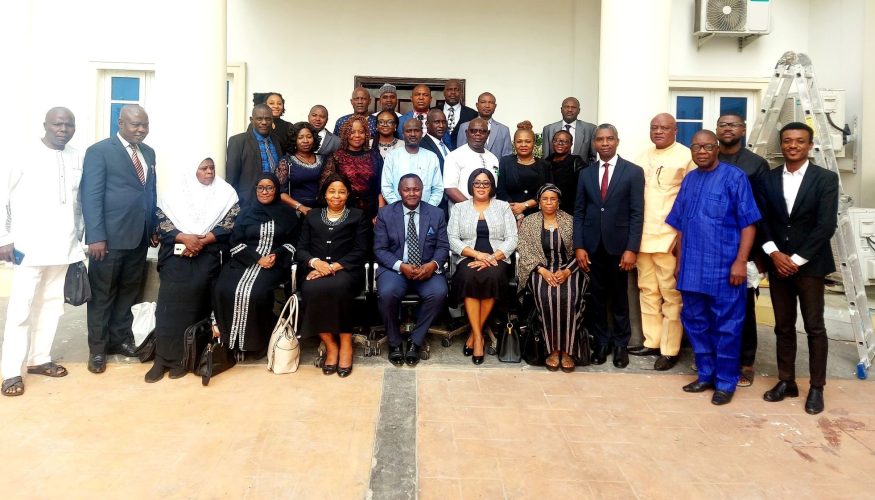DPP FORUM PLOTS CRIMINAL JUSTICE REFORM ROADMAP AT LEDAP PARLEY
The DPP Forum held last week at the exquisite Timeoak Hotel & Spa in Lekki, Lagos. Organised by the Legal Defence and Assistance Project (LEDAP) with MR. CHINO OBIAGWU SAN as the Convener, the programme was attended by DPPs and heads of legal departments at the ICPC, NDLEA, Police and Special Fraud Unit (SFU). The intensive two-day programme was moderated by CITY LAWYER’s EMEKA NWADIOKE, formerly a member of the Nigerian Bar Association (NBA) Criminal Justice Reform Committee, erstwhile Chairman of NBA Lagos Branch Police Duty Solicitors Scheme (PDSS), and currently a member of the Governing Council (Committee) of NBA Section on Public Interest and Development Law (SPIDEL). The programme was hosted by LEDAP in collaboration with the Federal Justice Sector Reform Coordinating Committee and with the support of MacArthur Foundation. CITY LAWYER reports.
The 9th edition of the Directors of Public Prosecutions (DPP) Forum held under the uncertainties of a planned protest in Lagos on Day 1 of the programme over the cash crunch occasioned by the Naira Redesign scheme. The massive turn-out of DPPs from across the length and breadth of the country was therefore a pleasant surprise.
The intensive programme dwelt on criminal justice reform, with special emphasis on ways of more effectively implementing the innovations in the Administration of Criminal Justice Act (ACJA) and Laws.
DPPs came from such far-flung states as Zamfara, Borno, Kano, Sokoto, Osun, Anambra, Enugu, Cross River, Akwa-Ibom, and Ogun, to name a few. Heads of legal departments in the Independent Corrupt Practices Commission (ICPC), National Drug Law Enforcement Agency (NDLEA), and Nigerian Police Force formations across the country also attended the explosive sessions.
Kick-starting the sessions, Obiagwu, adjudged by many jurists as the “Godfather of ACJA” because of his seminal work on the subject, took the participants on a tour de force in relation to the key provisions of ACJA. He spoke on “Innovations in Administration of criminal justice Act/Law – focus on 21 Minimum standards.” His address opened a floodgate of interventions by the elite audience during the Question & Answer session.
Having distilled the key sub-themes for the two-day round-table through his kaleidoscopic review of ACJA and its equivalents in the States, the stage was set for an x-ray of the plea bargain regime in Nigeria by the cerebral Dr. Babajide Martins, the DPP in the Lagos State Ministry of Justice. Given that Lagos State has often led the way in justice sector reforms, the participants could not have asked for a better speaker. He spoke on “Plea bargain as a prosecutor’s case management tool: Sharing Lagos State experiences under ACJL Lagos State.” He later shared copious literature on the subject to guide participants in kickstarting the plea bargain regimes in their various states.
The next session on “Police-prosecutor relations: Pre-conviction forfeiture of properties and recent developments” was facilitated by the highly experienced Mr. Chukwu Agwu, a ranking officer in the Legal Department of SFU. He was formerly Head of Legal Department at the Lagos State Police Command and also held the same position at Zone 2 of the Nigerian Police Command.
Day Two of the programme took off with a recap of the previous day’s sessions by Rosemary Agbede, a Project Officer with LEDAP. The first session then dwelt on “Understanding the provisions of gender equity and social inclusion under the Administration of Criminal Justice Act 2015/Laws: The task of investigators and prosecutors to promote fair administration of criminal justice in Nigeria.” The session was facilitated by Ozioma Izuora, a fiery gender rights advocate and Senior Lecturer in the Faculty of Law, Baze University, Abuja. The session threw up issues pertaining especially to the protection of women and children under the criminal justice system.
This opened the floor for Mrs. Bunmi Adesomoju, the Director of the Lagos State Office of the Public Defender (OPD) to speak to the issue of “Fair hearing in criminal justice administration in Nigeria: Understanding provisions for legal defence and the protection of suspects and defendants under the Administration of Criminal Justice Act/Laws.” Her incisive treatment of the topic opened yet another floodgate of interventions on the thorny issue of free legal assistance for suspects and defendants in the criminal justice system.
The participants had the uncommon opportunity to take a second bite at the plea bargain discourse, as experienced criminal trial prosecutor, Mr. Tunde Sunmonu again dissected the plea bargain framework from a trial lawyer’s perspective. A Director in the Lagos State Ministry of Justice, Sunmonu again x-rayed the topic, “Plea bargain as prosecutor’s case management tool: Sharing Lagos State experiences under ACJL Lagos State.” The participants were especially excited that the hard-nosed prosecutor provided them with a draft Plea Bargain Agreement to adapt in deploying the framework in their states.
Sunmonu’s presentation set the stage for the eagerly awaited address by Lagos State High Court judge and former Lagos State DPP, Justice Olabisi Ogungbesan. The respected jurist spoke on “Timelines under the Administration of Criminal Justice Act 2015: Has the provision for time limits under the Act/Laws reduced delay in the administration of criminal justice in Nigeria?” The explosive session saw the participants engaging the jurist on sundry issues relating to ACJA and its equivalents in their states vis-à-vis techniques and tools for obviating delays in criminal trials.
The paper on “Electronic criminal evidence under the Administration of Criminal Justice Act 2015: Dissecting the rudiments of recent developments in electronic evidence in criminal justice administration in Nigeria” by the recently retired judge of the Kogi State High Court, Justice Alaba Omolaye-Ajileye was deemed as presented due to connectivity challenges.
Delivering the vote of thanks, Obiagwu encouraged other states to emulate Lagos State by establishing facilities that promote criminal justice administration, saying: “If you pass the law without putting in place the facilities, it is as good as not passing the law.” Such facilities include the Witness Support Unit in the DPP’s Office, Gender Unit, and Family Support Unit both in the police, among others.
The leading human rights advocate urged DPPs to train and mentor prosecutors to enable them develop professionally. He urged the participants to engage in peer learning and exchange programmes especially with model criminal reform states to improve criminal justice administration, urging them to improve their Information Technology skills as criminality gets increasingly technology-driven.
He stressed the need to harmonize and oversight the prosecuting agencies, and called for designation of some magistrate’s courts as Family Court to divert children from the criminal justice system as well as extensive use of plea bargain by the states.
He decried the vandalization of Statement Taking Rooms set up by LEDAP for some police formations, adding that while the MacArthur Foundation has provided some resources to support states in their reform programmes, such states must provide matching grants to show commitment to the reforms.
While the participants were treated to Reception Cocktails as well as a picnic to round off the programme, the no-holds-barred sessions and attendant interventions by the leading lights in Nigeria’s criminal justice administration system threw up sundry innovative models which are bound to ensure a more effective criminal justice system, even as stakeholders eagerly await the communique from the forum.
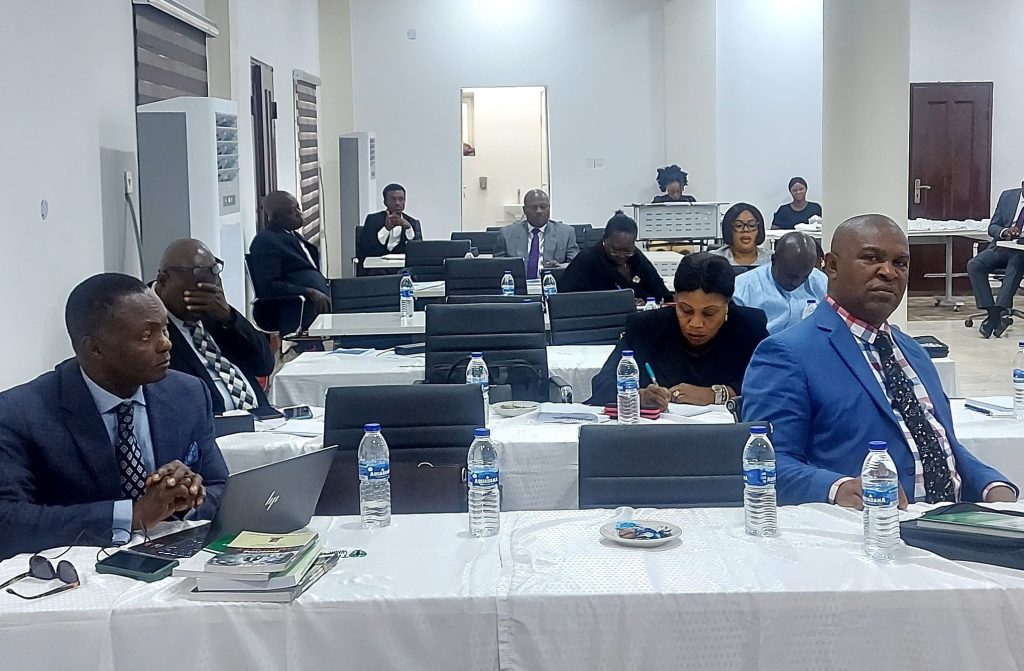
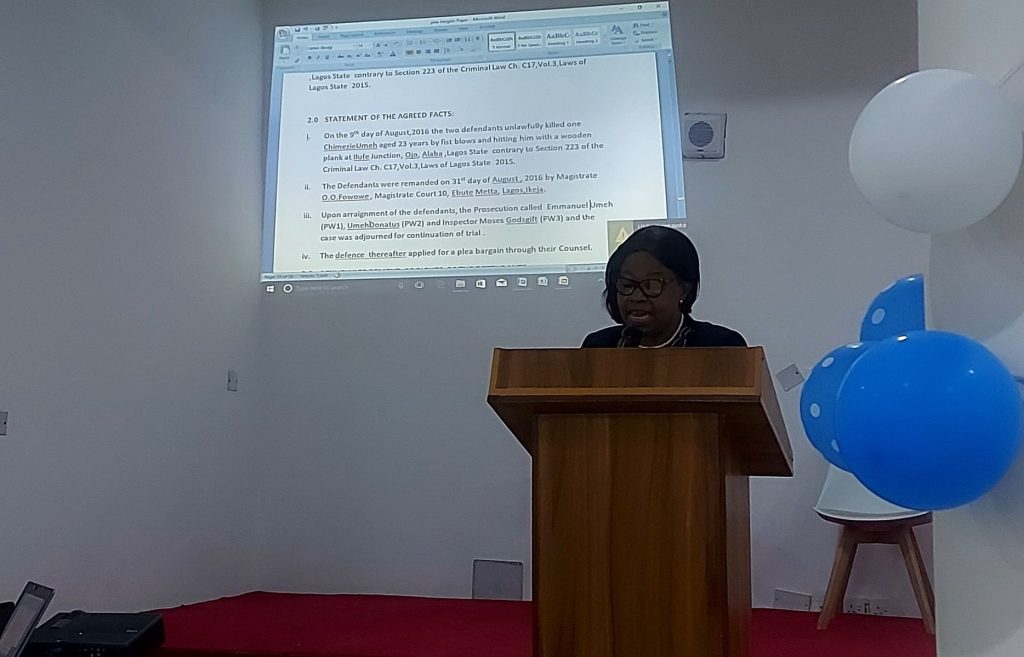
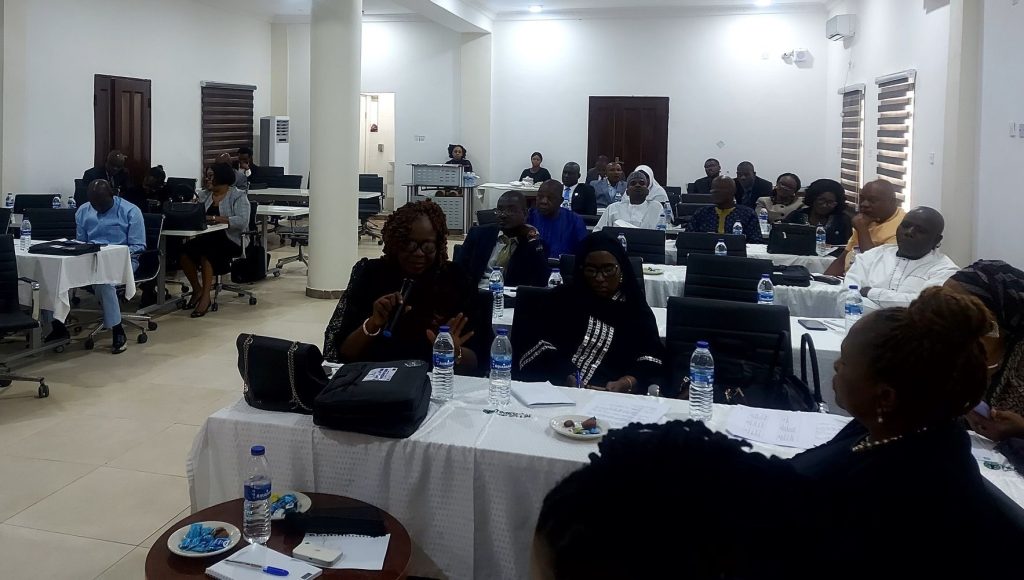
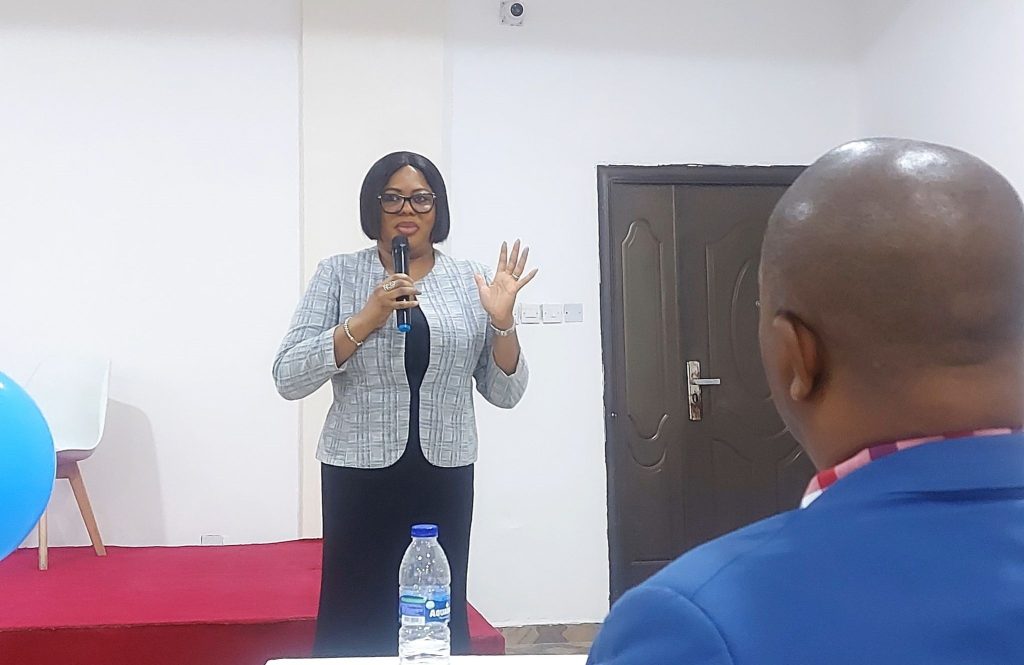
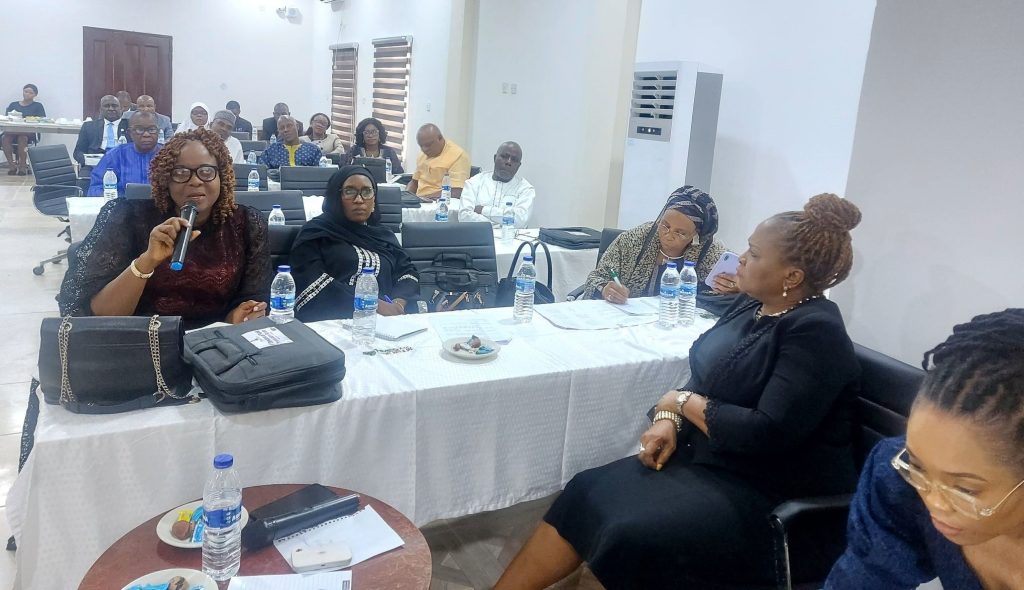
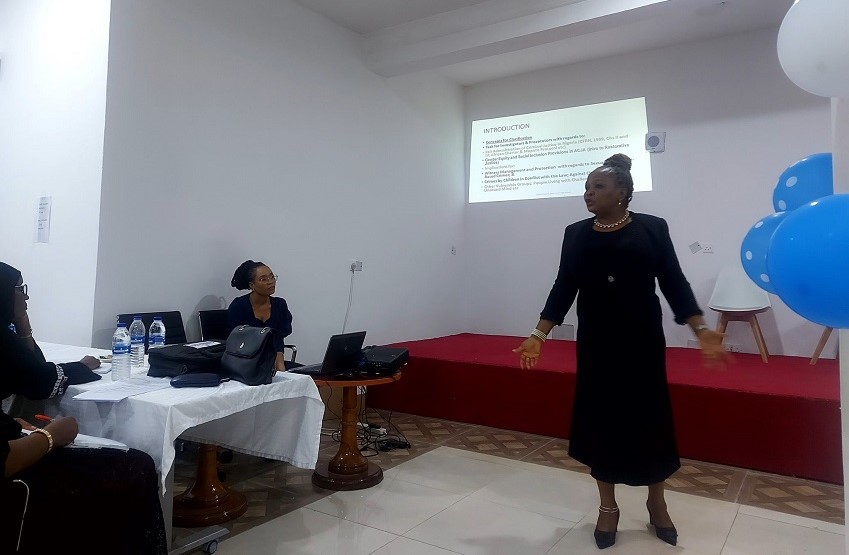
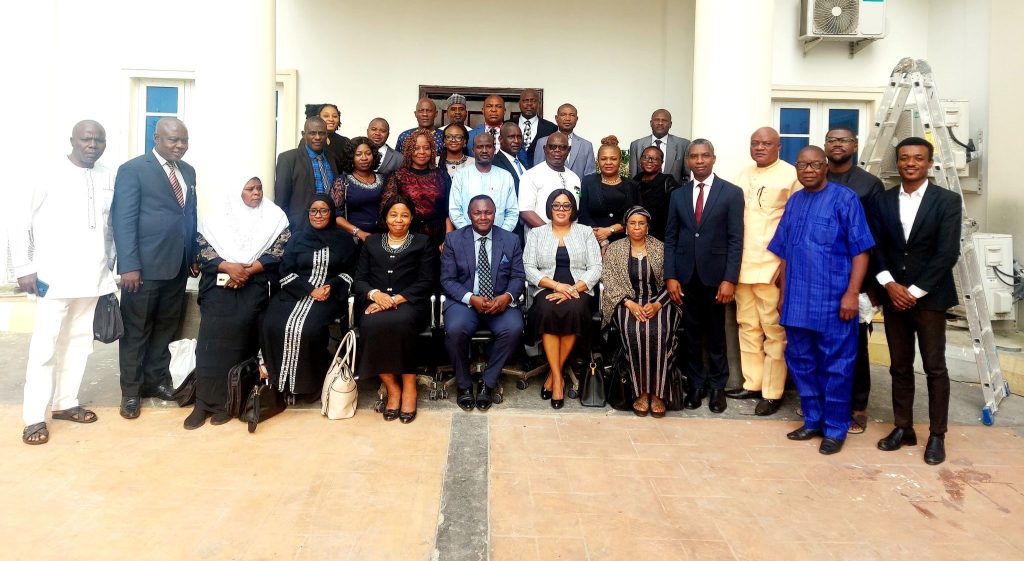
To join our Telegram platform, please click here
COPYRIGHT 2022 CITY LAWYER. Please send emails to citylawyermag@gmail.com. Join us on Facebook at https://web.facebook.com/City-Lawyer-Magazine-434937936684320 and on TWITTER at https://twitter.com/CityLawyerMag. To ADVERTISE in CITY LAWYER, please email citylawyermag@gmail.com or call 08138380083.
All materials available on this Website are protected by copyright, trade mark and other proprietary and intellectual property laws. You may not use any of our intellectual property rights without our express written consent or attribution to www.citylawyermag.com. However, you are permitted to print or save to your individual PC, tablet or storage extracts from this Website for your own personal non-commercial use.
